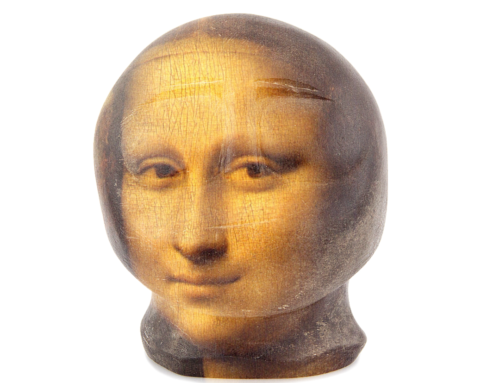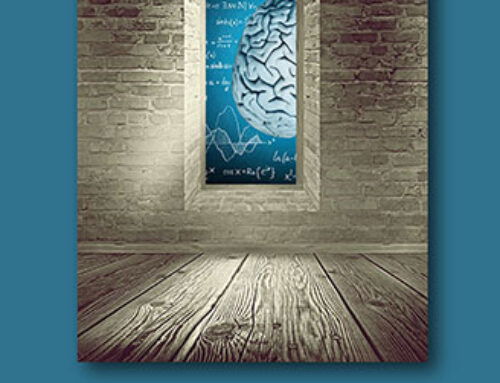My father, the cellist Gregor Piatigorsky, told me once that every time he played for an audience, it was a performance, regardless of the circumstance or the composition and/or size of the audience. There’s no such thing as frivolous fun in public for a musician, he said, even if that public was limited to family and friends. In his eyes, everyone judged, everyone counted; no audience was impartial, ever, even if there was no immediate consequence of note.
My father was a harsh critic, especially to himself, and surprisingly sensitive to criticism for a man of his professional stature. He felt that a single disparaging sentence or even phrase by a music critic in an otherwise favorable review was a damaging blow. I have seen him buy a stack of newspapers to prevent others from access to a personal review he disliked. Futile? Naturally, but it was an expression of pain, not logic. “It’s like a cat scratching my eyes out,” he’d say despondently. How he suffered!
He told me once that when still a boy in Russia learning his instrument he soaked his hands in ice water before practicing to train himself to overcome unexpected difficulties – physical obstacles – that might occur during a concert. He always went to rehearsals in a coat and tie, regardless of the heat or humidity or informality of the occasion, to mimic the concert attire to prepare for the constraints that exist during the performance. “You don’t play in shirtsleeves,” he said. He’s right, of course. He never mentioned that the other musicians at the rehearsals also comprised an audience, even if not the paying public. Perhaps he never connected the dots like that. There doesn’t seem to have been such a thing as a time of suspended judgment for my father. Critics hid in the shadows.
There was another side to my father as well. Despite the ability of critics to make him feel victimized, they also enraged him. He saw critics as targets as well as bullets. Ignorance judging knowledge! Amateurs teaching professionals! Outrageous! He told me of a critic who wrote a review without attending the concert and of another who had been recently promoted from sports to music. (I’m not sure these days whether that’s a promotion.) I can still hear my father’s ire some forty years after his death: “How dare they tell me how to interpret the score!”
“Why do you take them so seriously?” I asked. “A review is just one person’s opinion, and not even all the critics say the same thing about a concert. Opinions vary.” Although I believe what I said, I was faking the measured voice of reason. I can no more eliminate the residue of criticism than I can hang on to the comfort of praise.
“Because critics determine public opinion,” he’d say. “It’s their voice that establishes success or failure in our profession. No musician ever comes to the rescue of the maligned performer. It’s too dangerous for their future. The critics wield a great deal of power over us artists.”
The power of critics is not confined to artists, I fear. What insecure creatures we are. Let the experts lead the way and set the standards. When my father asked someone whether he liked a piece of music, a typical answer might be, “Oh…err, yes…but I don’t know that much about music, especially from that era.” To which my father might reply, “I see,” and then follow up with, “but would you consult a geologist to determine whether you thought a mountain was a pretty scene?” No, my father would not be impolite, but he might think it. We flock to movies that critics celebrate by four stars and skip those marred by less than two stars; we read books that critics favor or that win awards and let the others collect dust on the shelves. We reluctantly praise that which critics pan. We strain to understand them, to agree.
Perhaps even more damning than criticism is being overlooked. Imagine having your performance ignored – whether a novel or concert or sculpture exhibition or science article, whatever is your thing. It is a rare individual that does not suffer in silence when not worth the critic’s time or effort.
“Hold on,” I say, still concerned about my father’s negative reactions to a critic. “What’s written by one critic – or not written – can’t eliminate the standing ovation you may have received, the applause, the appreciation and recognition from that very same public that reads the reviews.”
I have no doubts that my father would understand this. He knew that his anti-critic arguments were debatable, that for every intellectual argument there was a counterargument, that critics need not be musicians to interpret a concert, that the objectivity of distance often clears the fog of subjectivity, that critics evaluate the performance not the person, that they often have a worthwhile point of view. Rendering astute criticism is a skill and serves a purpose. For us to listen and learn is not to be brainwashed. No argument there. How petty a picture I have drawn of critics. Shameful!
But the issue here is not critics per se; what concerns me is the blur of borders that surround us. Imagine standing in the middle of a circular world – a world defined by family and events and expectations – a unique world with a fuzzy perimeter in which we experience our lives and dreams and disappointments. That distinct space – our personal universe – differs for everyone on this planet. Our world is unique, like each of us is unique. We can empathize or imagine sharing a part of someone else’s world, but we cannot truly enter it. No two people have exactly the same genetic makeup or metabolism, not even identical twins; no two people have identical experiences or identical reactions to similar experiences.
If, then, we “own” our world as it were, if trespassing is impossible, why do we give external strangers – noncitizens of our private nations – such power over us?
Difficult question to answer, but my best guess is that we live in so many different overlapping, but distinct worlds that our identity becomes blurred. Just exactly who are we?
Lived Experience: In the Audience
My reflections on what it was like to be in the audience as my father pursued musical perfection.
Memoir: The Speed of Dark
“Drawn to the abstraction of science by the romantic fantasies of my father, world-renowned cellist Gregor Piatigorsky, I first envisioned it as whales fighting with giant squids, or jellyfish bursting from the deep like translucent, living pieces of jewelry.”
Novel: Introducing Mr Blok
My father wrote Mr. Blok at the prime of his illustrious cello career. I was very young and didn’t read the manuscript until last year. At some point many years ago, I asked Papa why he didn’t publish it. “Because if I did,” he said, “both you and your sister Jephta would be expelled from school!” Doubtful, I thought, but he said nothing more…






Leave A Comment